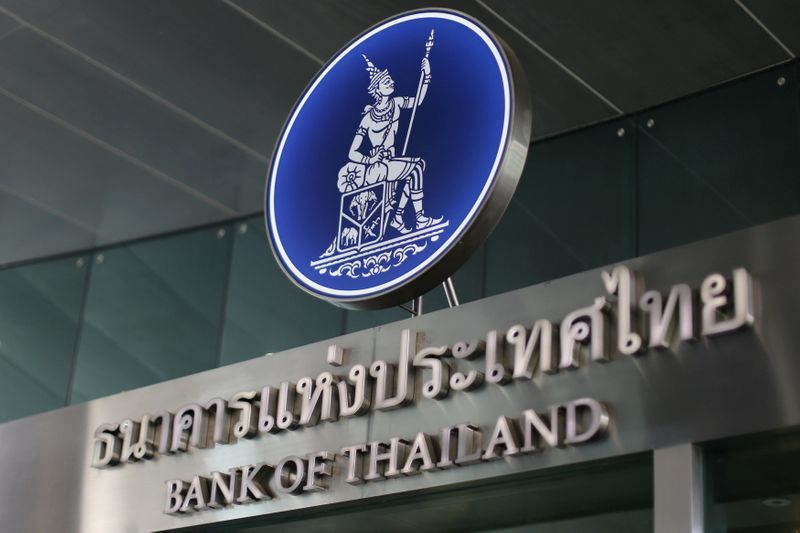By Orathai Sriring
BANGKOK (Reuters) - Thailand's economy will grow at a much slower pace than previously forecast this year and much further below its potential, the central bank said in minutes of a meeting earlier this month when it cut interest rates to a record low.
Risks are increasing due to the coronavirus outbreak, delayed government spending, and an intensifying drought, according to the minutes of its Feb. 5 meeting, which were released on Wednesday.
At the meeting, the monetary policy committee (MPC) unanimously voted to cut the policy rate by 25 basis points to 1.00%, the third reduction in six months.
"The committee viewed that a more accommodative monetary policy stance would alleviate the negative impacts," the minutes said.
The MPC "would stand ready to use policy tools as appropriate," the minutes said.
Thailand is the second most vulnerable economy to the virus outbreak after Hong Kong, with its strong reliance on China trade and Chinese tourists, analysts at Nomura say, adding they expect the MPC to cut rates again in the second quarter.
In December, the Bank of Thailand (BOT) predicted growth of 2.8% for this year, but it recently said it might be less than 2%.
It will next review monetary policy and provide updated economic projections on March 25.
BOT Governor Veerathai Santiprabhob previously said there was still policy room to help growth if necessary.
On Wednesday, Veerathai said it was too early to say whether the newly reduced policy rate was low enough for current conditions.
"That's because of the situation's dynamics, which need monitoring and assessing," he told reporters. "Importantly, all sides will have to help."
Thailand's trade-reliant economy grew just 2.4% last year, the weakest pace in five years, hurt by contracting exports amid global trade tensions, and sluggish investment.
Headline inflation in 2020 and 2021 was projected to be lower than the 1%-3% target range, the minutes said.
The committee remained concerned that the baht's value might not be consistent with economic fundamentals and would likely remain volatile despite its recent depreciation compared with trading partner currencies, they said.
The MPC said there was a need to closely monitor exchange rates and the effectiveness of the relaxation of rules to spur capital outflows.
The committee encouraged the BOT to consider implementing additional measures to stimulate investment and imports to reduce large current account surplus.
For the full minutes, click on https://www.bot.or.th/English/MonetaryPolicy/MonetPolicyComittee/ReportMPC/Minutes/MPC_Minutes_12020_7pmifrqb.pdf

(GRAPHIC: Thai Policy rate, GDP and CPI - https://fingfx.thomsonreuters.com/gfx/mkt/13/2229/2197/Thai%20policy%20rate%20and%20GDP.png)